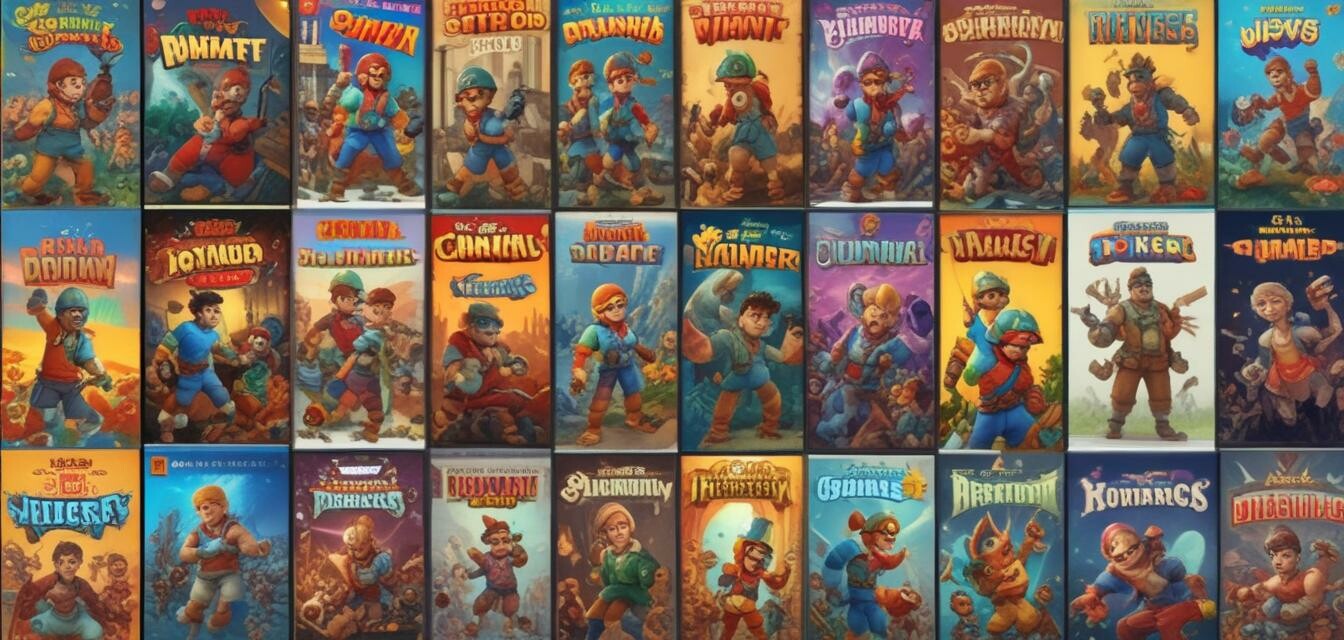
Educational Video Games
Key Takeaways
- Educational video games are designed to engage children while fostering learning.
- They cover a wide range of subjects, from math and science to reading and problem-solving.
- These games enhance critical thinking, creativity, and collaboration skills.
- Parents can choose educational consoles to ensure the right content is available.
In today’s digital age, video games have evolved from simple entertainment sources to powerful educational tools. With families constantly looking for ways to enhance their children's learning experiences, educational video games are becoming an integral part of both gaming and education. In this guide, we'll dive deep into the benefits of educational games for children and teens, discuss various platforms and game types, and help you make informed decisions.
The Importance of Educational Video Games
Educational video games can stimulate interest in subjects that children may find challenging or boring. By integrating lessons with play, these games provide a unique way for kids to learn while they have fun.
Benefits of Educational Video Games
- Engagement: These games often have interactive elements that keep children focused.
- Adaptability: Many educational games adjust to the player's skill level, offering personalized learning experiences.
- Skill Development: They can enhance cognitive skills such as problem-solving, critical thinking, and teamwork.
- Safe Learning Environment: Students learn through trial and error without the fear of real-world consequences.
Popular Categories of Educational Video Games
There are various genres of educational video games that cater to different interests and age groups. Here are some popular categories:
| Category | Description | Examples of Skills Developed |
|---|---|---|
| Math Games | Games that focus on mathematical concepts and problem-solving. | Arithmetic, Geometry, Logical reasoning |
| Science Games | Exploration of scientific principles through interactive gameplay. | Biology, Physics, Chemistry |
| Language Arts Games | Games designed to enhance vocabulary, grammar, and reading skills. | Reading comprehension, Critical analysis, Language usage |
| History Games | Simulation of historical events or challenges, often requiring strategic thinking. | Research skills, Chronological thinking, Cultural awareness |
| STEM Games | Focus on science, technology, engineering, and mathematics concepts. | Creative problem-solving, Innovation, Teamwork |
How to Choose the Right Educational Video Game
Selecting the right educational video game can greatly impact your child's learning experience. Here are some tips:
Tips for Selecting Educational Video Games
- Determine your child's learning level and interests.
- Look for games that offer educational content aligned with school curricula.
- Check reviews and ratings to gauge the game's effectiveness and fun factor.
- Consider games that promote social interaction, such as multiplayer modes.
- Trial versions can provide a preview of the game before purchasing.
Gaming Consoles Ideal for Educational Video Games
To get started with educational gaming, families should consider the following family-friendly consoles:
| Console | Age Suitability | Popular Educational Games | Additional Features |
|---|---|---|---|
| Nintendo Switch | All Ages | Brain Age, Mario Kart, Animal Crossing | Portable, Interactive Multiplayer |
| PlayStation 5 | Teens and Up | Little Big Planet, Overcooked, Unravel | High-Quality Graphics, VR Integration |
| Xbox Series X | Teens and Up | Kerbal Space Program, Minecraft: Education Edition | Robust Online Features, Game Pass Access |
Engaging the family in educational gaming
One of the best aspects of educational video games is that they can be a family affair. Here are a few ways to engage everyone:
- Have family game nights where everyone plays educational games together.
- Encourage siblings to collaborate on puzzles and challenges within the game.
- Discuss the skills learned after each gaming session to reinforce the experience.
- Rotate game choices to expose children to a variety of subjects.
Conclusion
Educational video games are an excellent bridge between learning and play. By choosing the right games and platforms, parents can turn game time into a productive family bonding experience that fosters knowledge and critical skills. Embrace the fun of learning with educational video games today!
Pros
- Promotes learning in a fun environment.
- Targets a variety of subjects and skills.
- Engages children through interactive play.
- Many available on well-known gaming consoles.
Cons
- Some games may have a steep learning curve.
- Cost of consoles and games can add up.
- Distraction potential if not monitored.
- Some children may prefer standard video games over educational ones.
Further Explore Educational Gaming
For those interested, explore more on our site:








